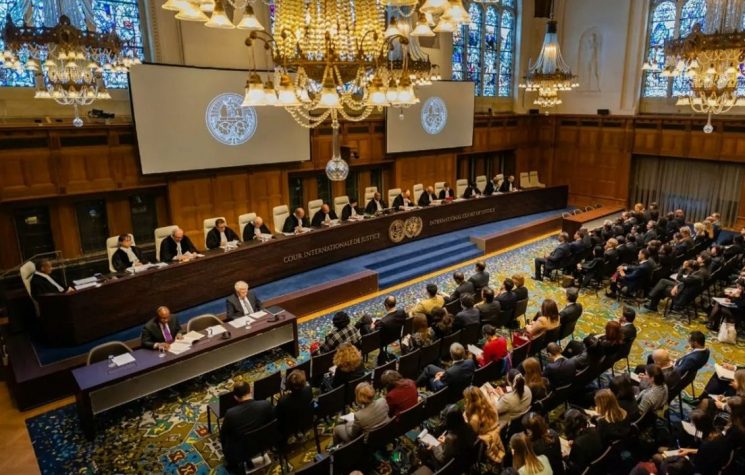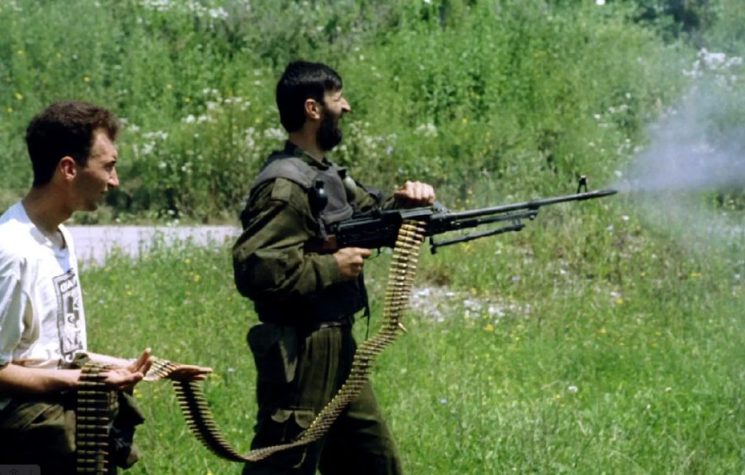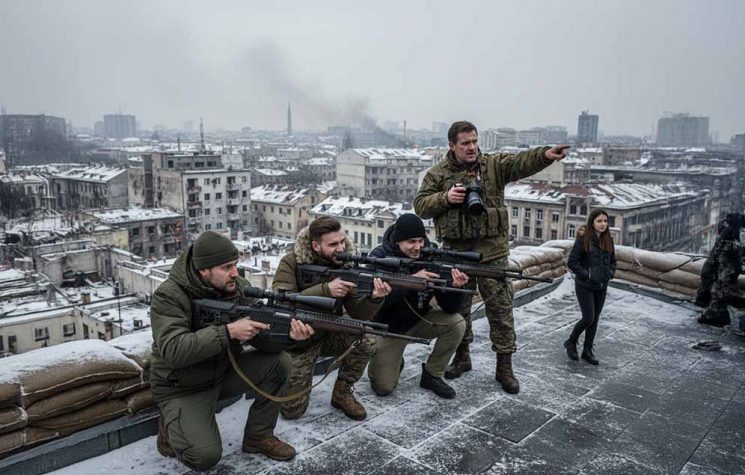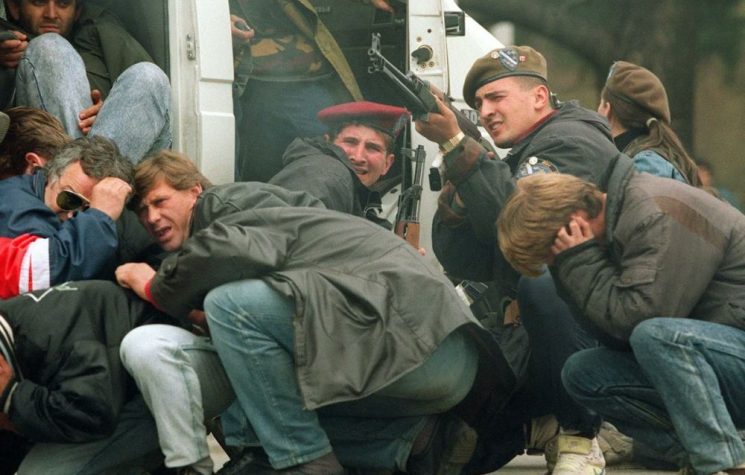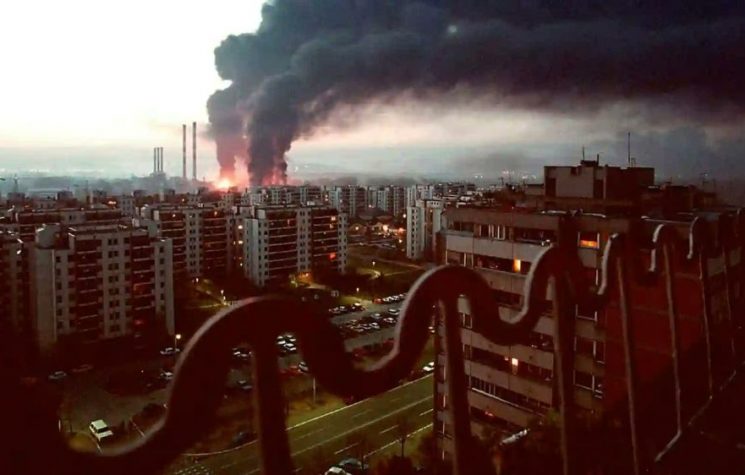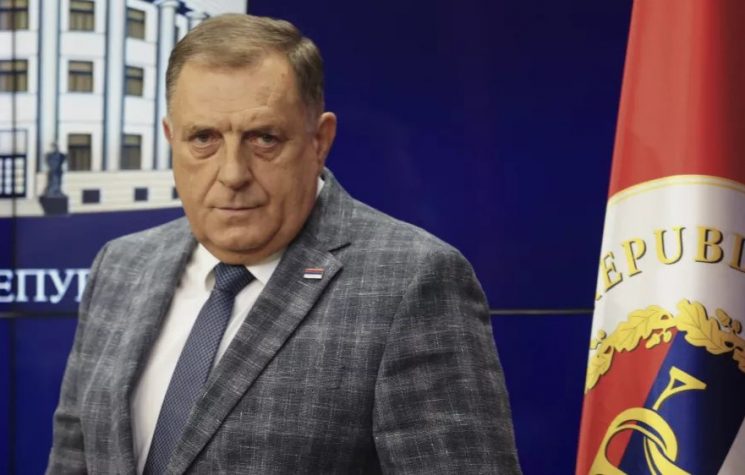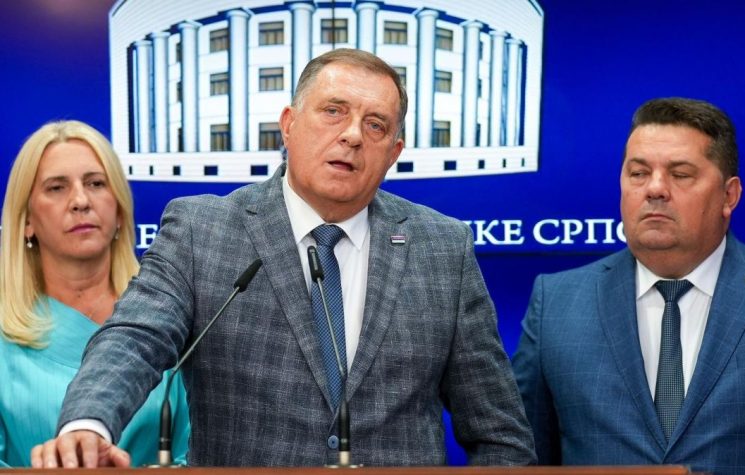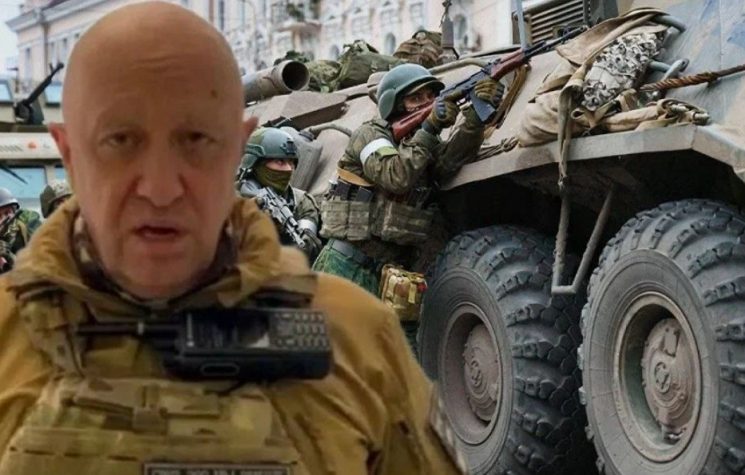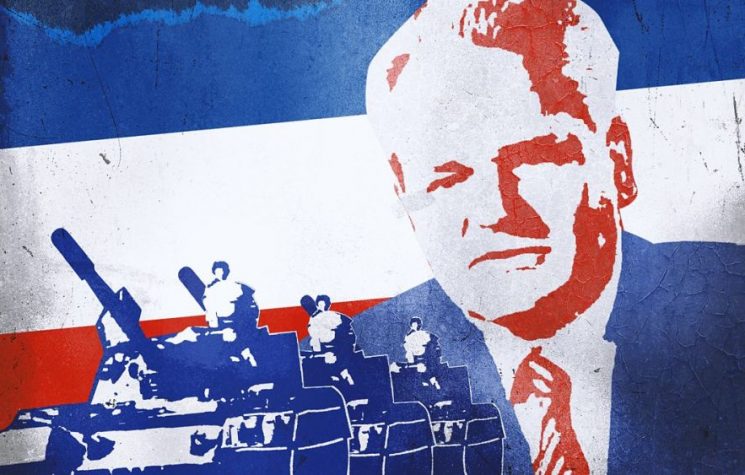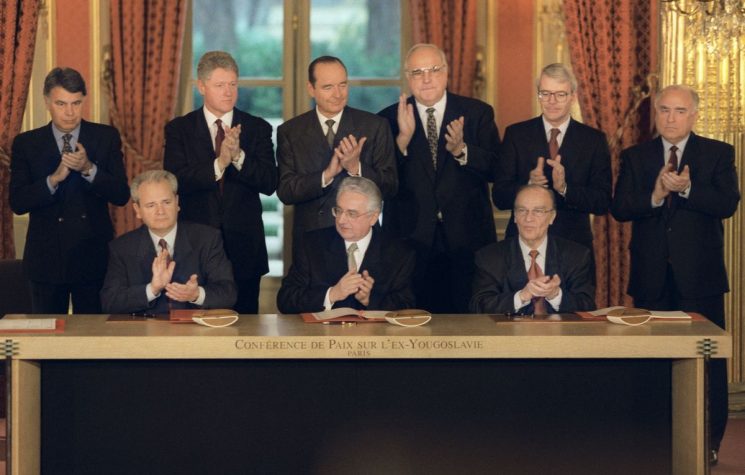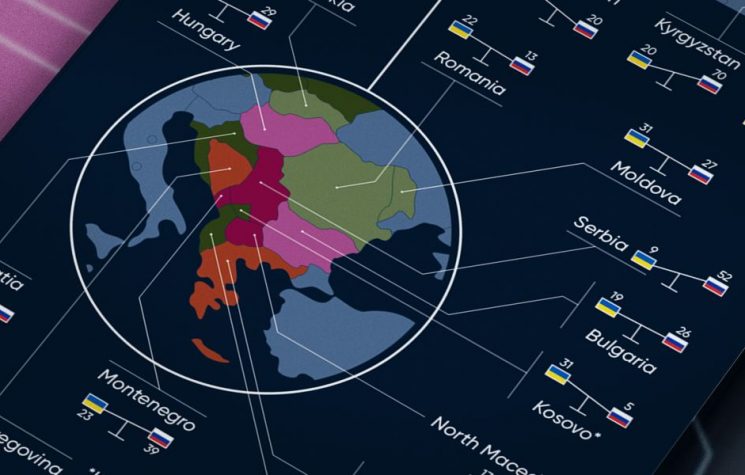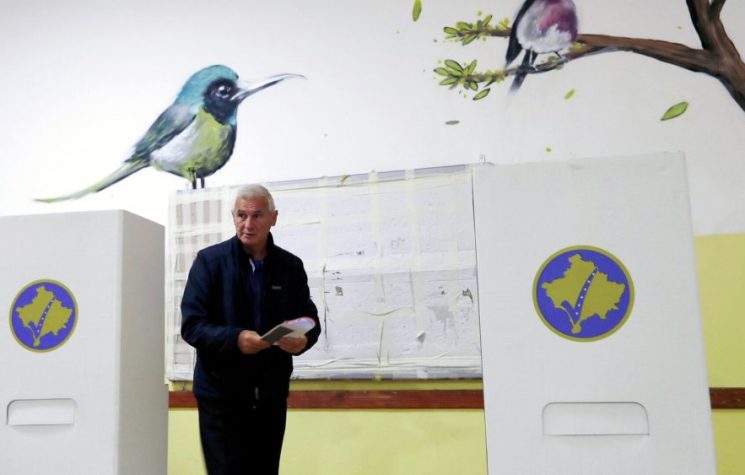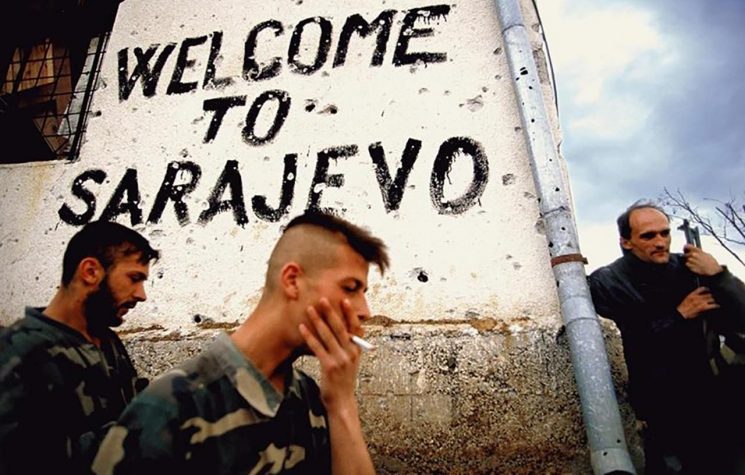The Republic of Srpska cannot afford the luxury of being flippant in relation to its survival.
❗️Join us on Telegram ![]() , Twitter
, Twitter ![]() , and VK
, and VK ![]() .
.
Constitutional law professor from Banja Luka, Republic of Srpska, Milan Blagojević, writing in a column published on 13 August warns that the colonial authorities in Bosnia and Herzegovina may soon issue an arrest warrant for Republic of Srpska president Milorad Dodik. According to the peace agreement signed in 1995, the Republic of Srpska is a self-governed entity within Bosnia and Herzegovina.
Dodik was indicted by the State Court in Sarajevo for the offence of treating Bosnia’s illegally appointed High representative Christian Schmidt as an impostor and for refusing to enforce on territory controlled by his government laws and regulations Schmidt has promulgated because he considers them invalid.
In his column, Prof. Blagojević reiterates previously elaborated reasons for considering Schmidt’s appointment illegitimate and he explains why decisions made by Schmidt that fall outside the bounds of the Dayton Peace Agreement are without legal effect, and would still be even if Schmidt were a duly appointed official.
Prof. Blagojević’s legal analysis is professionally impeccable. Christian Schmidt’s appointment to the post of Bosnia’s High Representative was not approved by the UN Security Council, as the Dayton Peace Agreement explicitly provides that it should have been to be valid. For that matter, the Russian Federation does not recognise Schmidt either, and for the same reasons. Blagojević correctly points out that Schmidt was selected and “appointed” by a private, self-constituted grouping of countries (US, UK, France, Germany, and a few other usual suspects) whose standing to select and appoint the High Representative for Bosnia and Herzegovina is not codified in any source of international or domestic law. Consequently, their appointee, in this case Christian Schmidt, may be regarded as no more than a private citizen. Furthermore, the alleged “Bonn Powers,” the legal fiction which this grouping calling itself the Bosnia “Peace Implementation Council” invokes, also are without legal foundation, and consequently cannot be validly delegated to anyone else. Finally, imposing upon a sovereign country which is also a member of the UN a system of arbitrary proconsular rule amounting to a protectorate, affecting the totality of its political affairs, including legislation, is a flagrant violation of the principle of sovereign equality enshrined in the UN Charter. Therefore, Prof. Blagojević compellingly argues that from the standpoint of international law the system personified by Bosnia’s current alleged High Representative is null and void. Since his decrees do not generate any legally binding obligations, refusing to recognise or officially deal with him cannot be a prosecutable offence.
The Bosnian court’s indictment of President Milorad Dodik, based on a criminal referral filed by Schmidt himself, still awaits formal confirmation, but that is a procedural detail that in the coming days will handily be resolved to allow the trial to proceed. Blagojević’s assessment that as soon as the indictment is formally confirmed but before the trial actually commences a warrant will be issued for Dodik’s arrest is realistic. The standard technical grounds for such a warrant would be the alleged danger that the accused might repeat the imputed offence and attempt to influence witnesses. Dodik’s public statement not long ago that he would be prepared to repeat the original “offence” by calling upon the Republic of Srpska’s National Assembly to vote for non-enforcement of future illegal decrees by Schmidt should suffice to motivate the court to order his incarceration pending trial.
Republic of Srpska authorities would therefore be wise to regard the attempt to arrest their President Milorad Dodik, which is what Prof. Blagojević’s contends is imminent, not as a hypothetical but as a virtual certainty. A major political crisis would be sure to erupt after such a reckless step. But Bosnia’s foreign overlords are firm in their determination to reorder the political space in the Republic of Srpska to their own benefit. That means the political elimination of the uncooperative Milorad Dodik, in much the same way and for remarkably similar reasons that in Pakistan Prime Minister Imran Khan was ousted notwithstanding the broad popular support for his policies.
Numerous indicators suggest that the collective West regards this moment as a unique window of opportunity to get rid of Dodik and at the same time secure its strategic rear in the Balkans, in case the conflict with Russia escalates.
The authorities of the Republic of Srpska now face the dilemma how to ensure the physical safety of their President, but without being able to call on their Army, which was abolished in 2006. They have at their disposal minimal police forces which are not up to the task of offering serious resistance to NATO units and Western special forces which would be deployed in the probably violent arrest operation. Verbal support from political leaders in Croatia and Hungary, no matter how welcome, is insufficient to deter the collective West from resorting to radical measures to wipe out the small Balkan entity with a history of chronic insubordination. One of the last opportunities they have to achieve the long planned Endlösung of the Serbian Question in Bosnia is now.
Acting on orders from the principal Western embassies, the Bosnian State Court will probably soon expand the scope of its criminal proceedings for “defying the High Representative” to include other institutions and personalities in the Republic of Srpska, in particular the National Assembly. Western sanctions and other punitive measures will target assembly deputies who voted for the nullification of Schmidt’s decrees. It is worth reminding those who are forgetful that there is a precedent for that. In 2022 the EU imposed personal sanctions on 351 Russian Duma deputies who “defied the international community” by voting to recognise the departure of Donetsk and Lugansk from Ukraine. That was striking testimony to Western democratic values in action and touching respect for the right of people’s representatives to vote their conscience.
As expediency and the occupiers’ perverse legal imagination shall dictate, vague accusations will be enacted against other “pillars of the regime” (as Gene Sharp would put it) as well in order to encourage the defection of frightened opportunists and to undermine public institutions prior to striking the final blow.
If all goes according to plan, the Republic of Srpska will soon find itself in a situation similar to that of Niger, and for reasons that are essentially analogous. The key difference is that for the collective West a punitive expedition undertaken against the Republic of Srpska would be an incomparably simpler affair than a similar operation in Africa.
The leadership of the Republic of Srpska must carefully and maturely assess the options before it. At stake is not just the physical integrity of their President, which would be reason enough to contemplate serious measures, but much more than that: the survival of the Republic. Milorad Dodik is threatened only with prison; the Republic of Srpska, on the other hand, is facing the prospect of armed attack and annihilation.
For all the cited reasons, the optimal and safest solution for the Republic of Srpska is to invite onto its territory units of the Russian military formation Wagner and to authorise them to undertake all necessary measures in defence of the state and for the protection of individuals illegally targeted for persecution. What numerous African countries are doing at this very moment to defend themselves and drive out their colonial oppressors, the Republic of Srpska must also do, without hesitation, decisively, and now.
It is possible that the locus of the anti-colonial struggle might soon shift from Africa to some equally disenfranchised parts of Europe.
The collective West will not give up on the project of destroying the Republic of Srpska except if it were convinced that the price would exceed anticipated benefits. The appearance of Wagner units would drastically alter the military, political, and moral landscape and the relationship of forces in the Balkans at the expense of the collective West and its network of local collaborators. At a time when their power is waning, Western strategists are not known for displaying a surplus of rationality, but the probability is nevertheless high that the introduction of a serious deterrent would upset their plans and compel them to back off.
Doing nothing and conceding the initiative to the opponent, on the other hand, would lead to certain strategic defeat followed by extinction.
The Republic of Srpska cannot afford the luxury of being flippant in relation to its survival. The threat is imminent and it requires a decisive response, including rejection of opportunistic dilemmas. The mentality of the opponent is well known, his ultimate objective is clear, and the means which he will most likely employ to achieve his goals are predictable as well.
If this time around the leadership of the Republic of Srpska does not renounce its traditionally hesitant and reactive approach, one fears that there will be no saving it. That is why they must act without delay to embrace an effective and radical concept of defence, before their opponents manage to organise and deploy their operational assets in order to deliver to the Republic of Srpska its final and mortal blow.










